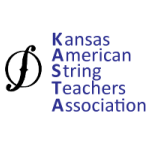
Reprinted with permission from the Alabama Ala Breve.
For the past 50 years or more, we music educators have been involved with one initiative or another aimed at advancing the cause of music in our schools. We, and our faithful parent partners, have continually felt a need to advocate for the place and priority of music instruction at all levels of K-12 schooling. Additional allies in this endeavor have been those in the business community who have a vested financial interest in music activity and instruction. All three of those groups, and others, have produced an impressive variety of statistics, philosophical statements, scientific studies, historical research, anecdotal observations, and just plain common sense that work together to support the notion that offering music in school settings is a good idea – that is, it is somehow beneficial to the education of school children. What follows is a brief review of the major elements of recent advances in this area of work.
As good a place as any to start is a statement on this topic by our national organization. The list of “20 Important Benefits of Music In Our Schools” was published by NAfME (the National Association for Music Education) in 2014 as a compilation of ideas from many sources (see photo insert). As we look through this list, we see some familiar ideas, a few new ideas, and maybe even some that are a bit controversial, depending on where you stand with aesthetic concept philosophy, neuro-musical research, and the arguments, pro or con, regarding the so-called “Mozart Effect.” Nevertheless, the NAfME list offers important insights into what professionals in our field think about this topic. It also guides us in how we should develop our rationales for music study, and how we might best position ourselves in approaching the critical topic of music advocacy. Another thing the NAfME list does is to remind us that before we attempt to convince others of the need for music in the schools, we should clarify in our own minds why we think music study is a valid area of study for school curricula.
20 Important Benefits of Music in Our Schools
National Association for Music Education
- Musical training helps develop language and reasoning: Students who have early musical training will develop the areas of the brain related to language and reasoning. The left side of the brain is better developed with music and songs that can help imprint information on young minds.
- A mastery of memorization: Even when performing with sheet music, student musicians are constantly using their memory to perform. The skill of memorization can serve students well in all fields of education and beyond.
- Students learn to improve their work: Learning music promotes craftsmanship, and students learn to want to create good work instead of mediocre work. This desire can be applied to all subjects of study.
- Increased coordination: Students who practice with musical instruments can improve their hand-eye coordination. Just like playing sports, children can develop motor skills when playing music.
- A sense of achievement: Learning to play pieces of music on a new instrument can be a challenging, but achievable goal. Students who master even the smallest goal in music will be able to feel proud of their achievement.
- Kids stay engaged in school: An enjoyable subject like music can keep kids interested and engaged in school. Student musicians are likely to stay in school to achieve in other subjects.
- Success in society: Music is the fabric of our society, and music can shape abilities and character. Students in band or orchestra are less likely to abuse substances over their lifetime. Musical education can greatly contribute to children’s intellectual development as well.
- Emotional development: Students of music tend to be more emotionally developed and intellectually mature, demonstrating more empathy toward other cultures. They also tend to have higher self-esteem and are better at coping with anxiety.
- Students learn pattern recognition: Music learning experiences aid in developing children’s math and pattern-recognition skills. Playing music offers repetition in a fun format.
- Better SAT scores: Students who have experience with music performance or music appreciation score higher on the SAT. One report indicates 63 points higher on verbal and 44 points higher on math for students in music appreciation courses.
- Fine-tuned auditory skills: Musicians can better detect meaningful, information-bearing elements in sounds, like the emotional meaning in a baby’s cry. Students who practice music can have better auditory attention, and pick out predictable patterns from surrounding noise.
- Music builds imagination and intellectual curiosity: Introducing music in the early childhood years can help foster a positive attitude toward learning and curiosity. Artistic education develops the whole brain and develops a child’s imagination.
- Music can be relaxing: Students can fight stress by learning to play music. Soothing music is especially helpful in helping kids to relax.
- Musical instruments can teach discipline: Kids who learn to play an instrument receive a valuable lesson in discipline. They will have to set aside time to practice and rise to the challenge of learning with discipline to master playing their instrument.
- Preparation for the creative economy: Investing in creative education can prepare students for the 21st century workforce. The new economy has created more careers that call for job skills enhanced by artistic study and experiences.
- Development in creative thinking: Kids who study the arts learn to think creatively. This kind of education can help them solve problems by thinking “outside the box” and realizing that there may be more than one right answer.
- Music can develop spatial intelligence: Students who study music can improve the development of spatial intelligence, which allows them to perceive the world accurately and form mental pictures. Spatial intelligence is helpful for advanced mathematics and more.
- Kids learn teamwork: Many music education programs require teamwork as part of a band, choir or orchestra. In these groups, students will learn how to work together and build camaraderie.
- Responsible risk-taking: Performing a musical piece can help students to learn how to deal with fear and anxiety, which will help them in reaching their potentials in all areas of life.
- Better self-confidence: With encouragement from teachers and parents, performing in a musical event can build pride and confidence in students, as well as developing their ability to communicate and collaborate with others in a joint endeavor.
One view of the over-arching purpose of public education might be that schools exist to provide systematic and formalized instruction in areas of learning valued by society. If one accepts that definition as our beginning premise, advocacy for music in the schools is on solid footing. After all, it seems clear to even the most casual observer that music is almost as ubiquitous as the air we breathe. In contemporary American society, enormous resources are expended on a daily basis in pursuit of music making, music listening, and the general enjoyment and consumption of music. Of course, it goes even deeper than that.
As Clifford Madsen and Terry Lee Kuhn observed in their book Contemporary Music Education, music is “universal” – “found in all cultures.” We might add that it is also found to serve a wide variety of purposes, including the contexts of entertainment, ceremony, artistic expression, and religious worship that principally define music’s role in contemporary American culture. It follows, then, that the intracultural and intercultural pervasiveness of music as an art form implies this necessary distinction of value; and, therefore, establishes a legitimate place for music in school curricula.
The basic question of “why teach music” may be further answered by considering a more specific question: What human attributes and/or characteristics of learning may be addressed in a significant and effective way through the study of music?
In describing how humans learn, Charles Hoffer, in his book Teaching Music in the Secondary Schools, alludes to the widely accepted three domains of learning:
- “cognitive domain,”
- “affective domain, ”
- “psychomotor domain”
In this book, Hoffer draws upon the work of Benjamin Bloom and his colleagues who are credited with constructing hierarchies or “taxonomies” for two types of learning, or what they referred to as domains. They described the cognitive domain as the domain of “information and understanding, ” and the affective domain as the domain of “feelings and attitudes.” A taxonomy for the third domain, the psychomotor domain, was developed later by Elizabeth Simpson who described it as the domain “that deals with physical skills.”
Even a brief perusal of these three domains of learning reveals the obvious ways that music study connects with the processes of learning. Considering all of the other subjects taught in schools, if we follow the average student through his/her average school day, I think we would find that it is the music courses that offer the most connections for not just one, or two; but for all three domains of learning.
If we accept the arguments in favor of inclusion of music in school curricula, we then could proceed to additional questions that help us to build confidence in the general, as well as specific, benefits of the study of music. Those benefits may be seen to emanate from the unique potentials for education that the study of music offers within the contexts of the three domains of learning. We see those potentials by considering two categories of usefulness for music study:
- Which educational benefits can be best accomplished by studying music than by studying any other subject?
- Which educational benefits can be accomplished as well by studying music as by studying any other subject?
Building on Hoffer’s ideas along this line of reasoning, the following are some points that define music’s place in one or both of those categories.
- Music is an established academic discipline, and as such, it is a field of study with its own unique bodies of knowledge and literature, and its own traditions of scholarly research.
- As with any other academic discipline, music functions as an intracultural repository of information, tradition, product, power, and sustainability of cultural heritage.
- Studying music expands and builds students’ exposure to and familiarity with repertoire beyond what they would normally encounter through common media such as TV, radio, movies, video games, etc.
- Studying music deepens students’ knowledge of how music works as an art form and as a phenomenon and artifact of human existence.
- Studying music provides significant opportunities for creativity and self-expression beyond the commonplace and ordinary.
- Studying music enables students to become skilled and sensitive listeners of music, better understanding what they hear and how it has meaning.
- Studying music teaches students to use and understand a unique abstract symbol system.
- Studying music enhances students’ understandings of human kind and the role of aesthetics in culture and society.
- Studying music enhances a student’s general quality of life and that of all others who benefit from his/her music making and creative insights.
- The study of music develops each person’s musical potential.
In 1983, Dr. Howard Gardner, professor of education at Harvard University, suggested that the traditional notion of intelligence based on I.Q. testing is far too limited. In its place, Dr. Gardner put forth a list of eight “Basic Human Intelligences” to account for a broader range of human potential in children and adults. These intelligences are:
- Linguistic intelligence
- Logical-mathematical intelligence
- Spatial intelligence
- Bodily-Kinesthetic intelligence
- Musical intelligence
- Interpersonal intelligence
- Intrapersonal intelligence
- Naturalist intelligence
Of course, the one that jumps out to us is number 5 – musical intelligence. If we define the term “intelligence” in this context as the capacity to communicate through sending and/or receiving information and/or messages, then I think we can all see how, yes, all humans do indeed have the inborn, innate capacity to respond to music messaging. Therefore, the study of music can be seen to directly address one of the most basic of human potentials.
In building our rationale for music study, we sometimes find advantage in distilling our thoughts into an overview of topics that blend the practical with the philosophical. To that end, we might consider three broad reasons for including music in school curricula that focus on the product of music education – the learning outcomes.
Within this context, we might all agree that one of our most important goals, if not our principle mission as music educators, is to produce musically trained students, Why? Because, for society, musically trained students have value. In fact, musically trained students are an important social and cultural commodity; and here’s how.
First, we should remember that a small percentage of students are specially and specifically gifted in music, just as some are specially gifted in math, a science, writing, the visual arts, and other fields. Society needs adult experts in all fields. Therefore, society benefits directly from providing early learning experiences in school settings for all students who have exceptional abilities so that they can achieve their high potentials as future leaders and producers within their specialize fields, including music.
Second, as Howard Gardner’s Eight Basic Human Intelligences reveal, all students have a basic musical intelligence. A fundamental goal of any schooling should be to develop all basic intelligences, of whatever levels, in all students. Therefore, “music for all” should be a given.
Third, as we all know, schools and society benefit directly from the utilitarian performances of trained musicians. Regardless of one’s philosophical views on this topic, the practical matter is that the participation of school performing ensembles and individual performers at school events and other public ceremonies of various kinds greatly enhance the quality and significance of those occasions by adding depth and impact to such events in support of their essential goals and purposes. After all, we have to admit, that’s where music in the schools started. We see that all the way back to the utilitarian rationales of Lowell Mason in the 1830s, to the academic credit bargaining of Will Earhart in the 1920s, and to the daily battles we all fight and the many accommodations we all make to keep our programs afloat and relevant in the ever-changing landscape of modern education.
So, after further examination, it appears that the NAfME list that we started with has it about right. Although we should heed warnings about using so-called “nonmusical” reasons for music in the schools in advancing the cause of music education, the other elements of the list represent some reliable information on which we might build our rationales. Those have about the right mix of practical and philosophical, reflecting the realities of our daily work, but also sprinkling in a good dose of the exciting and exhilarating potentials that we see in our students – those things that keep us going, and keep us fighting for what is right and for what is good for all students – and that is MUSIC!
SOURCES
Abeles, Harold F. & Custodero, Lori A. (2010). Critical Issues in Music Education Contemporary Theory and Practice. New York: Oxford University Press.
Elliot, David. (2015). Music Matters: A New Philosophy of Music Education (2nd ed.). New York: Oxford University Press.
Gelineau, R. Phyllis (1995). Experiences in Music (3rd ed.). Englewood Cliffs, NJ: Prentice Hall.
Hoffer, Charles R. (2001). Teaching Music in the Secondary Schools (5th ed.). Belmont, CA: Wadsworth/Thompson Learning.
Madsen, Clifford & Kuhn, Terry Lee. (1994). Contemporary Music Education (2nd ed.). Raleigh, NC: Contemporary Publishing.
Motycka, Arthur, (Ed.). (1976). Music Education for Tomorrow’s Society: Selected Topics. Jamestown, RI: GAMT Music Press.
Reimer, Bennett. (2003). A Philosophy of Music Education: Advancing the Vision (3rd ed.). Englewood Cliffs, NJ: Prentice Hall.


















